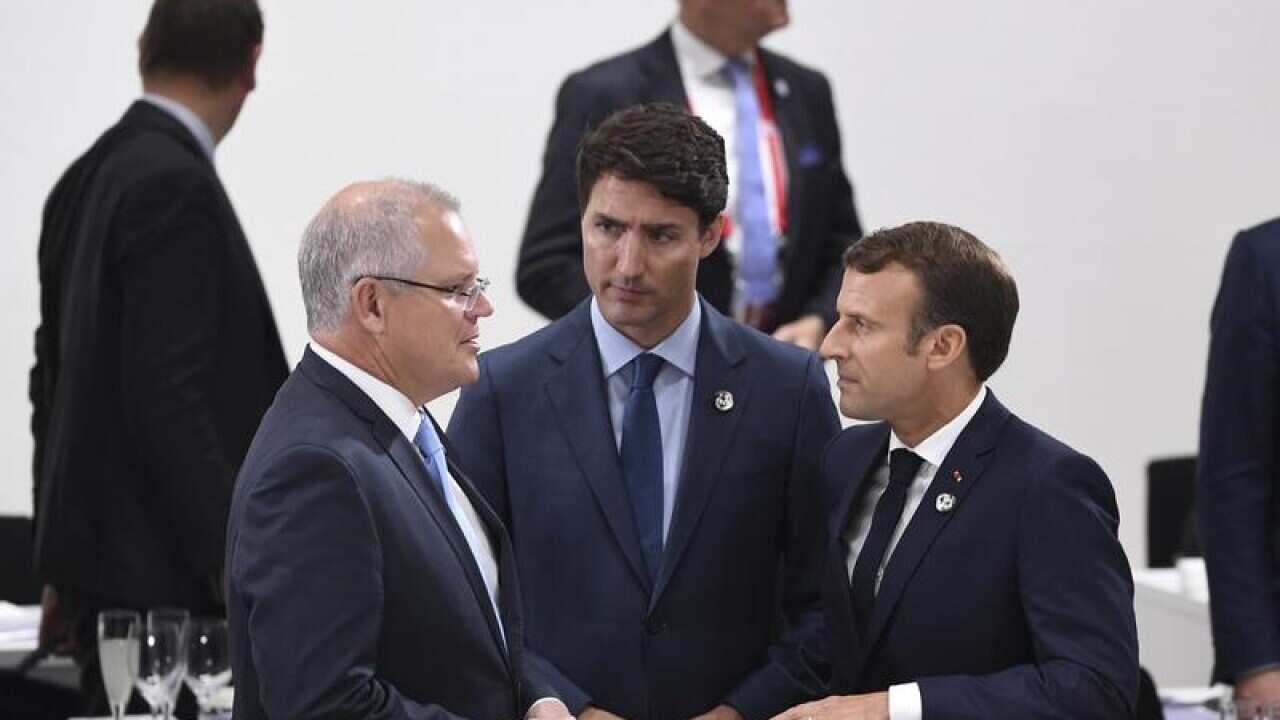Australia is hopeful it can push world leaders to work toward ensuring violent extremists can never again weaponise the internet as in the Christchurch massacre.
However, concerns the push to get social media companies to halt the publication of such content constitutes censorship is proving a hurdle.
Prime Minister Scott Morrison opened the second formal session of the G20 summit by asking world leaders to move towards adopting a set of clear principles about what is expected from tech giants.
He has been persuaded by the attack in New Zealand - when an Australian man allegedly killed 51 Muslims at two mosques and wounded dozens more - to push for a global crackdown.
In Christchurch, the world saw the internet being used as a weapon, he told leaders on Friday.
While the attack took place in New Zealand, its live-streaming via Facebook was an example of weaponising the internet to spread its global impact.
"This is now part of the armoury of terrorists, and the G20 has an opportunity to send a very strong signal about that to those who govern the internet - which is not countries, ultimately, it is the companies that established the platforms," he told reporters in Osaka before the session.
"While we celebrate the technology and its positive applications, what happened in Christchurch in March was a chilling wake-up call to how these important platforms can be weaponised by the most heinous evil."
Mr Morrison had intended to highlight the story of the youngest victim, three-year-old Mucad Ibrahim, and reminded the G20 the victims came from countries whose leaders sat around the table.
The coalition government, with the help of Labor, passed laws just before the federal election to make it a criminal offence for companies not to take down videos that show abhorrent violent content.
Morrison said most of the largest social media platforms are hosted in G20 countries and their bosses would listen if the summit spoke in unison.
His proposed statement in support of protections against internet weaponisation was met with support, especially from Canada, France and Japan.
But some hold concerns it was an attack on free speech.
Mr Morrison strongly rejected that characterisation, saying it was just as important to be clear what his proposal was not about as what it was.
"What we are not doing is seeking to constrain free speech. It is not about that," he said.
"We believe in an open and free web; we do not want to change that."
He told the leaders Australia and New Zealand were among the strongest advocates of free speech.
Many of the internet companies that would be affected come from the US, which strongly defends its First Amendment right to freedom of speech.
However, Mr Morrison did not raise the initiative directly with Donald Trump at their working dinner on Thursday night, and it was unclear whether the US president would be in the formal G20 session where it was discussed due to his scheduled meetings with the Russian and Turkish leaders.

